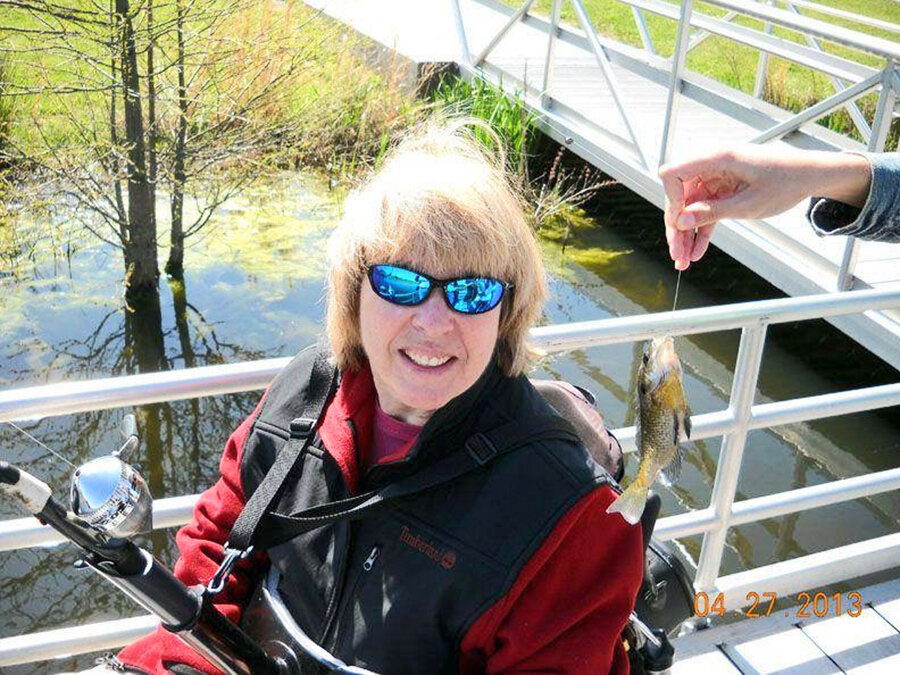George: Aid-in-dying bill deserves another look
Vickie George is the co-founder, president and CEO of Yes U Can USA, a nonprofit dedicated to creating assisted activities for people with limited mobility and disabilities. She resides in Wilmington.
I am a quadriplegic living with progressive multiple sclerosis. I served on then-Gov. Jack Markell’s Council for Health Promotion and Disease Prevention as the sole voice of the disability community because of my involvement and advocacy, along with being the co-founder of a nonprofit serving people with disabilities. It’s important to me to maintain autonomy over my personal health care decisions at the end of my life, just as I have throughout my life.
I resent the Patient Rights Action Fund, a New York City-based group, for claiming to speak for all Delawareans with disabilities by opposing the end-of-life options act (House Bill 140), which would allow medical aid in dying for terminally ill Delawareans to peacefully end unbearable suffering (“Group calls on Senate to reject assisted-suicide bill,” June 23). This out-of-state group does not speak for me or many other people with disabilities I know. This bill does not impose any decision on anyone; it simply provides an option to choose whether to use medical aid in dying or not. While there are no state polls measuring support for this option among Delaware voters with disabilities, national polling shows 76% of voters with disabilities support it.
The end-of-life options act includes the same time-tested core safeguards that have successfully protected vulnerable populations from abuse and coercion as Oregon’s 26-year-old Death With Dignity Act.
In 2019, the former 33-year executive director of Disability Rights Oregon, which has federal authority to act as a watchdog for people with disabilities and to request confidential records, confirmed in a letter written before his retirement that: “DRO has never to my knowledge received a complaint that a person with disabilities was coerced or being coerced to make use of the Act.”
In Oregon, studies conclude that medical aid in dying promotes appropriate, increased hospice use; contributes to more open conversations between doctors and patients about end-of-life care options; results in greater knowledge about palliative, end-of-life and hospice care, as well as better qualified clinician palliative care training.
It is simple. I want to make my health care decisions at the end of my life, as I have throughout my whole life, and to choose the option of medical aid in dying. I can’t imagine giving that decision to someone else in the last six months of my life.
That is why I am among the 72% of Delaware voters who support the end-of-life options act. I urge the Senate to revisit this compassionate legislation and Gov. John Carney to sign it.
Reader reactions, pro or con, are welcomed at civiltalk@iniusa.org.







